Do you need a personal trainer or do you need a coach?
What the Heck Is the Difference Between a Personal Trainer and a Coach?

If you’ve worked with Altus, you know we don’t just call ourselves personal trainers—we’re coaches. But what does that actually mean? What’s the difference?
At first glance, it might seem like just a title, a subtle shift in terminology. But in reality, the gap between a personal trainer and a coach is massive. It’s the difference between someone who simply guides you through workouts and someone who takes full responsibility for your long-term success.
A coach is a leader, a project manager, and a strategist—not just someone counting your reps. They take ownership of your results, plan for the long haul, and make adjustments to ensure you reach your full potential—whether that means weight loss, strength, or long-term performance.
Certifications: A Huge Divide in Education and Expertise
One of the clearest ways to see the difference between a personal trainer and a coach is in their education and certification paths. While both roles require knowledge of exercise science, the depth of knowledge required for true coaching is significantly higher.
Personal Trainer Certifications: Entry-Level Knowledge
A personal trainer typically holds certifications from organizations like:
- NASM (National Academy of Sports Medicine)
- ACE (American Council on Exercise)
- ISSA (International Sports Sciences Association)
These certifications focus primarily on:
✅ Basic exercise programming
✅ Proper movement mechanics
✅ Strength training and cardiovascular exercise
✅ Safety and injury prevention
While valuable, these certifications are designed for general population fitness, focusing on guiding people through structured workouts safely and effectively—but not necessarily building elite athletes or managing long-term performance, weight loss, or lifestyle transformation.
Key Differences Between a Personal Trainer and a Coach
1. A Higher Standard of Education
Coaching, especially at a high level, requires more rigorous and specialized education. The top coaching certifications are significantly more demanding, requiring in-depth knowledge of biomechanics, physiology, periodization, sports performance, and injury prevention.
CSCS (Certified Strength and Conditioning Specialist)
Issued by the National Strength and Conditioning Association (NSCA), the CSCS is the gold standard for coaching athletes. Unlike a personal trainer certification, CSCS requires a four-year college degree in a related field (such as Exercise Science, Kinesiology, or Sports Performance) before even sitting for the exam.
A
CSCS coach specializes in:
✔ Advanced strength and conditioning programming
✔ Athletic performance enhancement
✔ Speed, agility, and power development
✔ Injury prevention and rehabilitation integration
✔ Performance periodization for athletes
This is the certification required for most professional and collegiate strength coaches—a level far beyond what’s expected of a personal trainer.
NASM-PES (Performance Enhancement Specialist)
For those focused on high-performance training, NASM’s PES certification takes things to another level. While NASM also offers general personal trainer certifications, PES is built specifically for coaching athletes, including:
✔ Sport-specific training methodologies
✔ Advanced movement assessments
✔ Acceleration, deceleration, and agility programming
✔ Corrective exercise for injury prevention
✔ Neuromuscular efficiency and reaction time training
PES is a must-have for coaches working with serious competitors, from high school to pro athletes.
2. Focus: More Than Just Workouts
A personal trainer focuses primarily on exercise sessions—helping clients with strength training, cardio, and flexibility. Their role is mostly about leading workouts and making sure exercises are done correctly. Many personal trainers specialize in weight loss programs, guiding clients through structured routines aimed at burning calories and improving general fitness.
Coaches, on the other hand, take a much broader approach. Yes, training is part of the job, but it’s just one piece of a much larger puzzle. A coach looks at everything that affects performance and health, including:
✅
Nutrition – What and when you eat can make or break your results, especially for
weight loss or athletic performance.
✅
Lifestyle & Habit Formation – A coach doesn’t just tell you what to do—they
help you build long-term habits so you can sustain success beyond just hitting a
weight loss goal.
✅
Recovery & Stress Management – Training is only half the battle. Sleep, stress, and recovery strategies are key to optimal performance.
✅
Injury Prevention & Longevity – Coaches focus on keeping you strong, mobile, and pain-free
for years to come.
In short, a personal trainer helps you work out. A coach helps you transform your entire life.
3. Goal-Setting: Short-Term vs. Long-Term Success
A
personal trainer helps you achieve short-term goals, like:
✔ Losing 10 pounds
✔ Building muscle
✔ Running a faster mile
A
coach takes it
a step further—they focus on goals that actually
stick:
✔
Not just losing weight, but keeping it off permanently
✔
Not just building muscle, but optimizing performance for a lifetime
✔
Not just getting stronger, but moving pain-free for decades
Many people hire a personal trainer for weight loss, but without proper guidance on habit change, nutrition, and recovery, they often regain the weight after their sessions end. A coach ensures weight loss isn’t just temporary—it’s sustainable.
4. Relationship: Transactional vs. Transformational
Most personal trainer relationships are transactional—you show up, do the workout, and leave. Your relationship exists inside the gym and doesn’t extend much further.
Coaching is
deeply personal and long-term. A coach:
✅ Checks in outside of training sessions
✅ Holds you accountable for habits, nutrition, and mindset—especially for
weight loss and performance
✅ Adjusts programming based on
your life, stress levels, and challenges
✅ Is invested in your success
beyond just workouts
A personal trainer may help you with workouts, but a coach helps you with your entire lifestyle.
BOTTOM LINE => Leadership and Responsibility: The True Difference
At the core of it all, the biggest difference is leadership and responsibility. A personal trainer may guide you through workouts, but a coach owns your journey and is deeply invested in your success.
A personal trainer instructs. A coach leads.
A personal trainer focuses on workouts. A coach focuses on your entire life.
A personal trainer follows a script. A coach writes the playbook.
At Altus, we don’t just train clients—we coach athletes. Because no matter where you’re starting, whether your goal is weight loss, strength, or peak performance, you deserve a leader who takes your success as seriously as you do.
So, are you ready to be coached? Or are you just looking for another personal trainer? The choice is yours.


